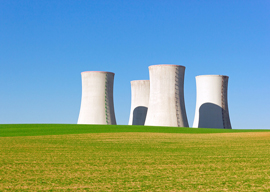
October 23, 2012

The U.S. could face the kind of attacks across the region that Ronald Reagan confronted when he put Marines in Beirut, with the U.S. embassy blown up and 241 Marines massacred by a suicide truck bomber.
And if after months we had smashed Iran as we did Iraq in Desert Storm, would the regime give way to a pro-Western democracy? Or would the result in Iran look like what exists today in Libya, Syria, Iraq, Yemen and Afghanistan?
Syria is breaking apart into Sunni and Alawite, Arab, Kurd and Druze, Christian and Muslim, Islamist and secular. Afghanistan is dissolving into Tajik and Uzbek in the north, Hazara in the center, and Pashtun in the south and east. Iraq is losing Kurdistan and reverting to civil-sectarian war.
A U.S. defeat of Iran could bring to power revanchists bent on payback through terrorism and propel that half of the population that is Arab, Baluch, Kurd and Azeri to try to break away.
Who would benefit from a breakup of Iran, other than jihadists?
Iran would surely stir up Hezbollah to rain down rockets on Israel and incite the Shia in Bahrain and Saudi Arabia to rise against the regimes there.
Would Shia in Iraq attack the U.S. embassy in Baghdad? We cannot know, but Gates is surely right that the consequences could be catastrophic.
Which raises the question. Why are we even talking about war?
Sen. Graham notwithstanding, the sanctions are working. The Iranian economy is sinking into recession, oil revenues have fallen, and hard currency reserves are being depleted. And what is the grave threat that justifies a war?
While Iran is enriching uranium to 20 percent, it has not enriched to weapons grade. Should they do so, we would know it. Ayatollah Khamenei has called nuclear weapons anti-Islamic, and the U.S. intelligence community says Iran has no nuclear bomb program.
America’s position as of today is: We do not want war with Iran, but will tolerate no Iranian bomb. Iran’s official position is: We want no bomb, and we are willing to negotiate, but we have a right to have a peaceful nuclear program.
Can we find no common ground here?
Gates and Burns are right. Before we go to war, let us find out, in face-to-face talks if need be, if we really have to go to war.
Image of nuclear power courtesy of Shutterstock